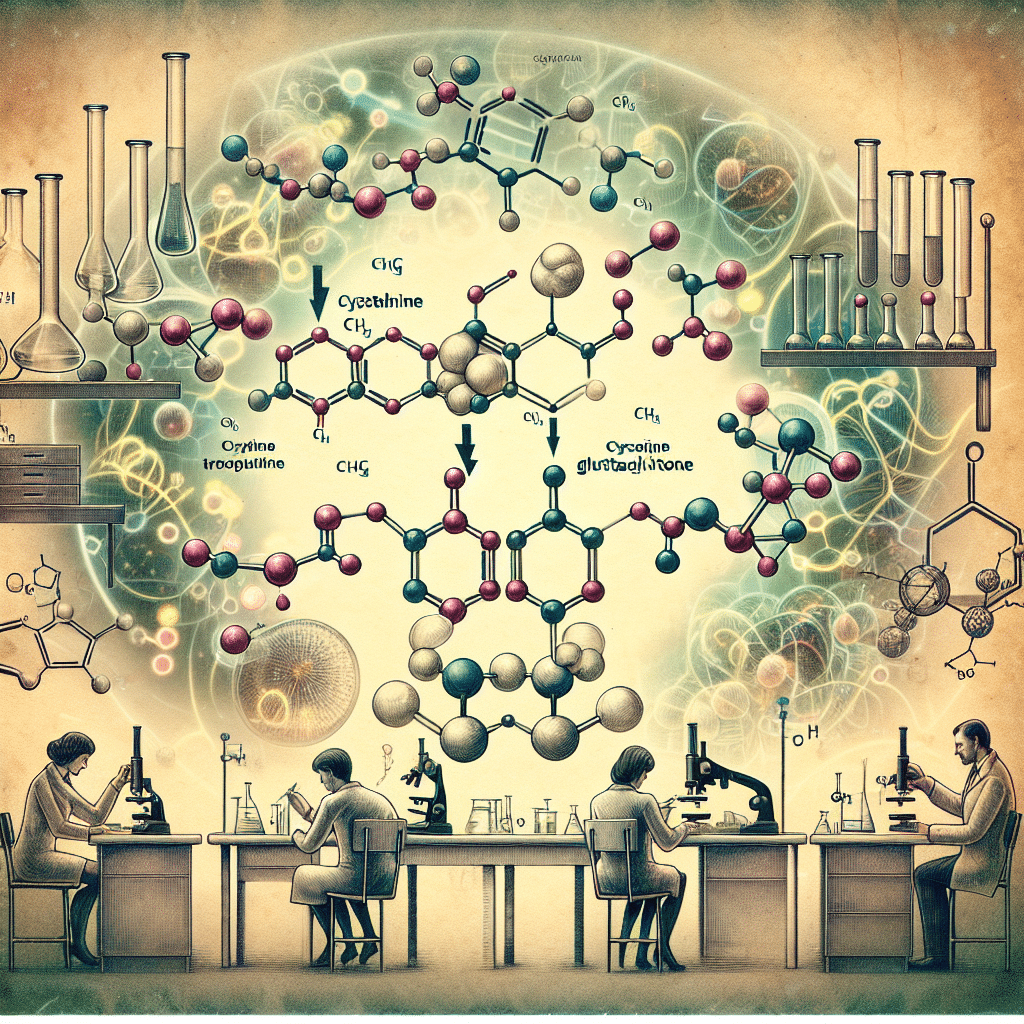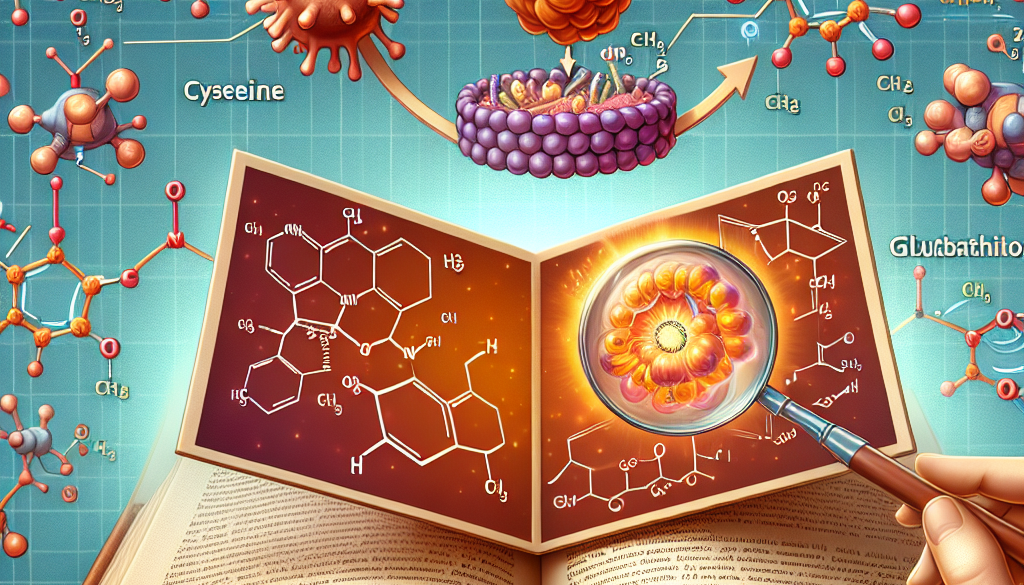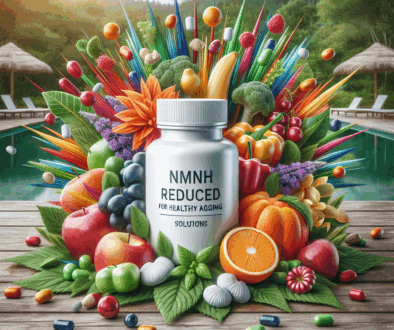Cysteine and Glutathione Production: Process
-
Table of Contents
- Cysteine and Glutathione Production: Essential Processes for Health
- The Significance of Cysteine and Glutathione
- Pathways of Cysteine Synthesis
- Glutathione Synthesis and Regulation
- Factors Affecting Cysteine and Glutathione Levels
- Research and Case Studies
- Conclusion: Harnessing Cysteine and Glutathione for Health
- Enhance Your Health with ETprotein’s Protein Products
Cysteine and Glutathione Production: Essential Processes for Health

Understanding the intricate processes of cysteine and glutathione production is crucial for appreciating their roles in maintaining health and preventing disease. These two molecules are vital components of the body’s antioxidant defense system and are involved in numerous metabolic processes. This article delves into the synthesis of cysteine and glutathione, exploring their importance and the factors that influence their production.
The Significance of Cysteine and Glutathione
Cysteine is a sulfur-containing amino acid that plays a pivotal role in protein synthesis, detoxification, and the regulation of metabolic processes. It is also a critical precursor to glutathione, often referred to as the body’s “master antioxidant.” Glutathione is a tripeptide composed of three amino acids: cysteine, glutamate, and glycine. It is essential for neutralizing reactive oxygen species (ROS), supporting immune function, and facilitating the regeneration of vitamins C and E.
Pathways of Cysteine Synthesis
The body synthesizes cysteine through two main pathways:
- The Methionine Cycle: Methionine, an essential amino acid, is converted into S-adenosylmethionine (SAM), which then produces homocysteine. Homocysteine can be either recycled back into methionine or converted into cysteine through the transsulfuration pathway.
- The Transsulfuration Pathway: This pathway involves the conversion of homocysteine to cystathionine by the enzyme cystathionine β-synthase (CBS), followed by the transformation of cystathionine into cysteine by the enzyme cystathionine γ-lyase (CGL).
Both genetic and environmental factors can influence these pathways, affecting cysteine levels in the body.
Glutathione Synthesis and Regulation
Glutathione synthesis occurs within the cells and is tightly regulated by several factors:
- Rate-Limiting Enzymes: The first step in glutathione synthesis is the formation of γ-glutamylcysteine from glutamate and cysteine, catalyzed by the enzyme γ-glutamylcysteine synthetase (GCS). This step is rate-limiting, meaning it controls the overall speed of glutathione production.
- Availability of Precursors: Adequate levels of cysteine, glutamate, and glycine are necessary for glutathione synthesis. Cysteine is often the limiting precursor, as it is less abundant in the diet and can be depleted by various stressors.
- Cellular Demand: Increased oxidative stress or immune activity can upregulate glutathione synthesis to meet the heightened demand for antioxidant defense.
Understanding these regulatory mechanisms is crucial for developing strategies to enhance glutathione levels, potentially benefiting health and longevity.
Factors Affecting Cysteine and Glutathione Levels
Several factors can influence the body’s cysteine and glutathione levels:
- Diet: Consuming foods rich in sulfur-containing amino acids, such as meat, eggs, and dairy, can boost cysteine intake. Additionally, certain plant-based foods like garlic, onions, and cruciferous vegetables contain compounds that can support glutathione synthesis.
- Supplementation: N-acetylcysteine (NAC) is a supplement form of cysteine that can replenish glutathione stores, especially in conditions of oxidative stress or acetaminophen overdose.
- Exercise: Regular physical activity has been shown to increase glutathione levels, enhancing the body’s antioxidant capacity.
- Age and Health Status: Aging and certain health conditions can reduce the efficiency of cysteine and glutathine production, leading to lower levels.
By addressing these factors, individuals can potentially optimize their cysteine and glutathione levels for better health outcomes.
Research and Case Studies
Several studies have highlighted the importance of cysteine and glutathine in health and disease. For instance, research has shown that glutathione plays a protective role in neurodegenerative diseases like Parkinson’s and Alzheimer’s. Additionally, cysteine supplementation in the form of NAC has been used successfully to treat respiratory conditions, such as chronic bronchitis, due to its mucolytic and antioxidant properties.
Statistics also support the therapeutic potential of these compounds. For example, a meta-analysis of clinical trials found that NAC supplementation could significantly reduce the risk of exacerbations in patients with chronic obstructive pulmonary disease (COPD).
Conclusion: Harnessing Cysteine and Glutathione for Health
In summary, cysteine and glutathione are essential for maintaining the body’s antioxidant defenses and supporting overall health. The synthesis of these molecules is a complex process influenced by dietary intake, lifestyle factors, and individual health status. By understanding and optimizing these processes, we can potentially enhance our resilience against oxidative stress and various diseases.
Enhance Your Health with ETprotein’s Protein Products
If you’re looking to support your cysteine and glutathione levels through diet, ETprotein offers a range of high-quality protein products that can help. Their organic, non-GMO, allergen-free proteins provide a rich source of amino acids, including cysteine, to aid in the synthesis of glutathione and support your body’s antioxidant defenses.
ETprotein’s offerings cater to various industries, ensuring that you can find the right product to meet your needs, whether you’re a consumer looking for dietary supplements or a manufacturer seeking quality ingredients. With their commitment to excellence and customer satisfaction, ETprotein is your go-to source for premium protein products.
About ETprotein:
ETprotein, a reputable protein and L-(+)-Ergothioneine (EGT) Chinese factory manufacturer and supplier, is renowned for producing, stocking, exporting, and delivering the highest quality organic bulk vegan proteins and L-(+)-Ergothioneine. They include Organic rice protein, clear rice protein, pea protein, clear pea protein, watermelon seed protein, pumpkin seed protein, sunflower seed protein, mung bean protein, peanut protein, and L-(+)-Ergothioneine EGT Pharmaceutical grade, L-(+)-Ergothioneine EGT food grade, L-(+)-Ergothioneine EGT cosmetic grade, L-(+)-Ergothioneine EGT reference grade and L-(+)-Ergothioneine EGT standard. Their offerings, characterized by a neutral taste, non-GMO, allergen-free attributes, with L-(+)-Ergothioneine purity over 98%, 99%, cater to a diverse range of industries. They serve nutraceutical, pharmaceutical, cosmeceutical, veterinary, as well as food and beverage finished product distributors, traders, and manufacturers across Europe, USA, Canada, Australia, Thailand, Japan, Korea, Brazil, and Chile, among others.
ETprotein specialization includes exporting and delivering tailor-made protein powder and finished nutritional supplements. Their extensive product range covers sectors like Food and Beverage, Sports Nutrition, Weight Management, Dietary Supplements, Health and Wellness Products, and Infant Formula, ensuring comprehensive solutions to meet all your protein needs.
As a trusted company by leading global food and beverage brands and Fortune 500 companies, ETprotein reinforces China’s reputation in the global arena. For more information or to sample their products, please contact them and email sales(at)ETprotein.com today.












